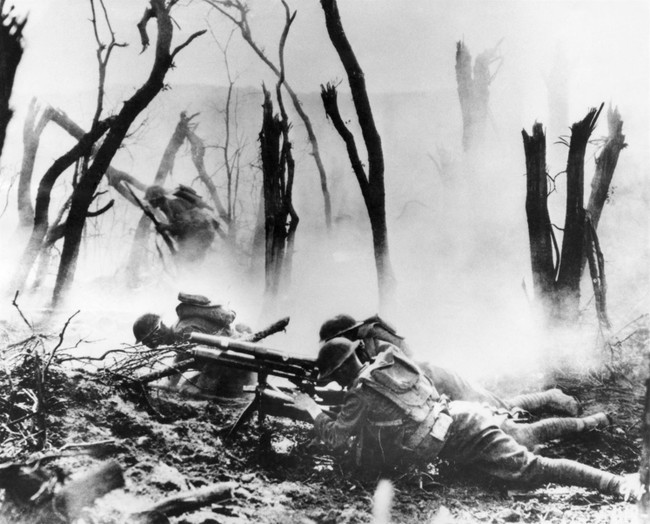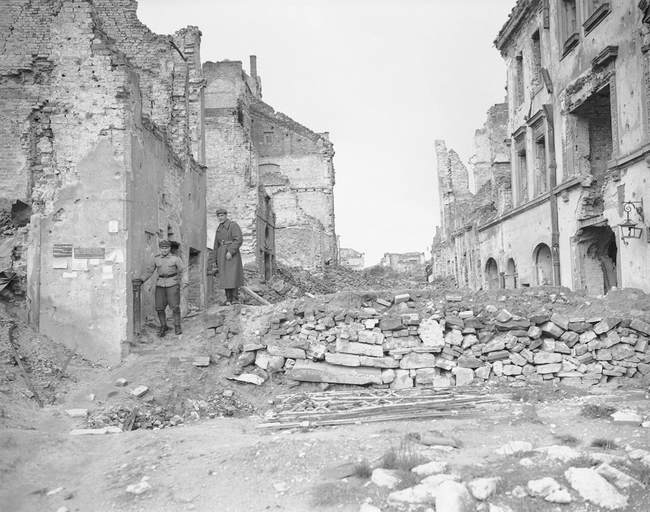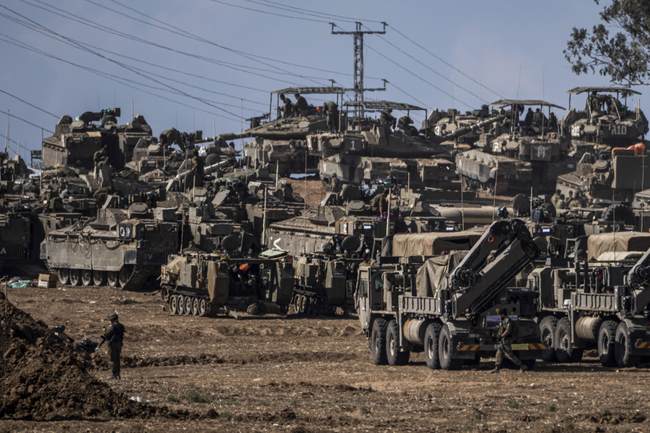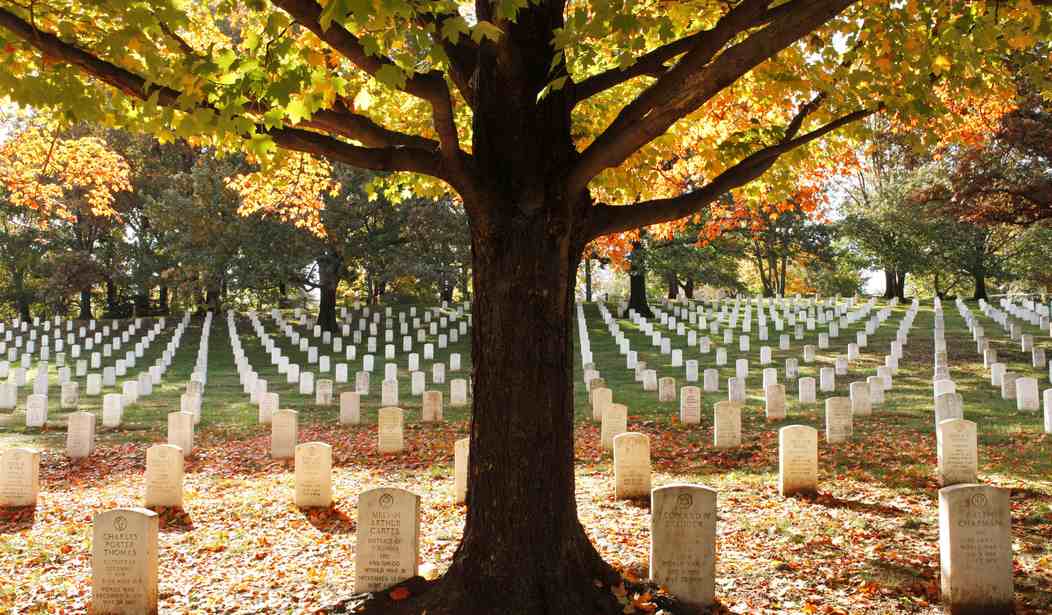Are We Seeing the Beginnings of World War 3?
The last month or so have seen a lot of events with global import; the war in Ukraine is continuing with no end in sight, and the Hamas attack on Israel shocked the world with its brutality and atrocity — that is, it shocked the world outside of American academia, who appear to support Hamas no matter how heinous their actions are.
Is the world tipping into a third world war? Well, it's not impossible. Recently, at FreePress, Bari Weiss and Walter Russel Mead had a conversation on the possibility. Here's the money quote from that interview:
It took time for things like communism to grow out of the social stresses that the Industrial Revolution produced. The first wars of the Industrial Revolution were cavalry campaigns in the age of Napoleon. The last war of the industrial era was probably World War II. That ended with atom bombs. Everything changed during the Industrial Revolution: the nature of the state, the nature of political parties, the nature of religious institutions, and the nature of the family. We saw mass immigration on a scale nobody had ever seen. For much of that time, nobody quite understood how the economy worked. No one understood what prevented a recession or a depression, or what made one. No one knew how to develop a social safety net that would take care of the costs of the Industrial Revolution. We are moving into another one of those storms. The 1990s, that people thought of as the end of history and an era of permanent calm—it was the eye of the storm. It looks to me like the eye is passing over and we’re about to get hit with the backside of it.
The "eye of the storm" metaphor is particularly apt if you consider it in light of the Strauss–Howe generational theory, in which we are in the middle of the Crisis phase put forth by the theory's authors, William Strauss and Neil Howe. In this theory, since the Middle Ages, Western civilization has gone through 80-110-year cycles that Strauss and Howe call saeculum, during which are born four generations. The saeculum are divided into four turnings, which can also be compared to seasons:
- First Turning: High (Spring)
- Second Turning: Awakening (Summer)
- Third Turning: Unraveling (Fall)
- Fourth Turning: Crisis (Winter)
Compare them also to the old saying, "Hard times make strong people. Strong people make good times. Good times make weak people. Weak people make hard times."
We are now, according to this theory, in the Crisis stage; if one looks around the state of affairs in the world today, it's easy to agree. The theory purports that the Crisis turning ends with a major event, such as a world war.
Are we in such a crisis now? Let's take a brief look at what led up to the last two world wars.
World War I

The Great War arose out of a series of conflicts in the Balkans, a regional conflict in which the primary losers of wealth and territory were the remnants of the Ottoman Empire. These conflicts involved small countries in a small region of eastern Europe that had been fighting among themselves for over a century (sound familiar?) and ended in the June 28, 1914, assassination of Austrian Archduke Franz Ferdinand by a Bosnian Serb, Gavrilo Princip. Sides were drawn up, and later that year, Germany invaded Belgium, triggering treaty obligations on the part of the United Kingdom, France, and Russia, and then it was Katie-Bar-the-Door. The Great War raged for four years, costing 8.5 million dead of wounds or disease and another 25-50 million indirectly due to the 1918 Spanish Flu, which is believed to have been spread worldwide in part by returning servicemen.
According to Strauss and Howe, the Great War was the culmination of a Fourth Turning.
World War II

The Second World War was, in many ways, a continuation of the first. The opposing powers were much the same; whereas the first pitted Britain, France, Russia, Belgium, and (after 1917) the United States against Germany and Austria-Hungary, the second had Britain, France, the Soviet Union, and the United States (after 1941), and Belgium against Germany, Italy, and Japan (some minor powers excluded, but the point stands.) A large part of the tensions that led to this second Great War were the harsh Treaty of Versailles forced upon Germany and the Great Depression, which led to economic tensions that allowed for the rise to power in Germany of a vicious, anti-Semitic demagogue — Adolf Hitler. In the Pacific, Japan's continual reach for resources led to its invasion of Manchuria, prompting the United States to retaliate by suspending, among other things, shipments of scrap steel to Japan. All of these events culminated in the German invasion of Poland, which kicked off the war in the European Theater, and the Japanese attack on the American fleet at Pearl Harbor, which was the start of the war in the Pacific. By war's end, between 35 and 60 million were dead — so many that accurate numbers are not available.
According to Strauss and Howe, the Second World War was also the culmination of a Fourth Turning.
As Things Stand
 If you've been reading the virtual pages here at RedState, you are all too aware of the state of the world today.
If you've been reading the virtual pages here at RedState, you are all too aware of the state of the world today.
There are two significant conflicts in which the major powers of the day are overtly taking sides: The Ukraine War, which pits Russia directly against Ukraine, which is supported by the United States and, to a lesser extent, the powers of Western Europe. Then we have the Israel-Hamas War, wherein Israel is supported by the United States and most of the Western world (although the support has been, at times, tepid), while Russia and China, as well as most of the Islamic world, are supporting Hamas, atrocities notwithstanding.
There are three major powers in the world: The United States, Russia, and China.
The United States is in a crisis of being. Our country has fallen into a morass of stupidity; a large portion of the populace seems more concerned with pronouns than productivity; our military leadership is placing more emphasis on diversity than war-fighting. Meanwhile, a large portion of university students appear to be taking the side of Hamas, who have committed some of the worst atrocities seen by humanity since the Holocaust.
China is about to fall off a demographic cliff, and they are sitting on a major real estate bubble that is primed to burst. Meanwhile, the Middle Kingdom is in the hands of a dictator who has amassed more personal power than anyone since Chairman Mao, and despite China's difficulties, he is determined to continue building a strategic nuclear arsenal.
Russia has already fallen off the demographic cliff. They are embroiled in a war with a much smaller power that has revealed the utter incompetence of the Russian Army, and yet they are hosting Hamas leadership for "consultations." The country is headed up by an old KGB apparatchik who bemoaned the fall of the Soviet Union as a great loss and who has, again, seized absolute control over a country that is essentially a dying giant that retains its nuclear arsenal.
In both of the conflicts named above, Russia and China are supporting the opposite parties as the United States. In Ukraine, Russia has some support from China against the U.S.-backed Ukraine. In the Middle East, Russia and China are offering support to the "Palestinians" against U.S.-backed Israel. Smaller regional powers are starting to choose sides as well.
This is not a recipe for world peace. Escalation of either conflict could lead to a global war.
Of course, wars are generally fought over resources and won by logistics. The United States has an advantage there, as we still have ample resources and a substantial industrial base, although not enough of one to match our World War II production. But in the Middle East, there is a religious element to the war, and wars fought in the name of religion have historically been the nastiest wars of all, and most likely to spread — we're seeing the signs of that already.
Of course, a world war is not inevitable. This Fourth Turning could easily climax in another sort of calamity: a global economic collapse or the disintegration of the world's major cities, which I might add is already happening. Of the possibilities, the economic collapse may be most likely (and most survivable) followed by the collapse of the big cities, which, as noted, is already underway.
A third world war, though, that is a possible civilization-ending event; it has the potential to be the final Fourth Turning. In any event, the current global crisis is almost certainly going to end in a major event, whether you accept the Strauss-Howe generational theory or not; the current global situation seems bound for a major event.
Shelter from the storm is in order; shelter, and a candle to last the night. The world will come out the other side of this, one way or another. The point may be simply to stick around to see what it looks like.














